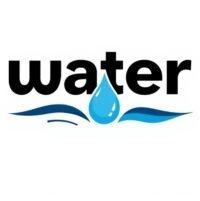
The Journal of Sustainable Hydrological Engineering is dedicated to advancing the field of hydrological engineering with a focus on sustainability and environmental stewardship. The journal aims to publish innovative research and practical solutions that address water management challenges while promoting ecological health and resilience.
Aims:
- Promote Sustainable Water Practices: Advocate for engineering solutions that ensure the sustainable use and management of water resources.
- Innovative Research: Highlight cutting-edge research that addresses current and future challenges in hydrology and water engineering.
- Interdisciplinary Collaboration: Foster collaboration among hydrologists, engineers, environmental scientists, and policymakers to create comprehensive water management strategies.
- Practical Applications: Provide a platform for sharing successful case studies and practical applications of sustainable hydrological engineering practices.
Scope:
- Water Resource Management: Research on sustainable management practices for surface and groundwater resources, including conservation techniques and regulatory frameworks.
- Hydrological Modeling: Development and application of innovative models for predicting hydrological responses to climate change, land use changes, and other environmental factors.
- Flood and Drought Mitigation: Studies focusing on engineering solutions for flood control, drought preparedness, and resilience-building in communities.
- Water Quality Protection: Investigations into techniques for maintaining and improving water quality in natural and engineered systems.
- Ecosystem Restoration: Research on the role of hydrological engineering in restoring and enhancing aquatic ecosystems and their functions.
- Climate Adaptation: Exploration of strategies for adapting hydrological systems to the impacts of climate change, including infrastructure resilience and sustainable practices.
- Green Infrastructure: Studies on the design and implementation of green infrastructure solutions, such as rain gardens, permeable pavements, and constructed wetlands.
By focusing on these aims and scopes, the journal seeks to contribute to the development of sustainable hydrological engineering practices that ensure the long-term health of water resources and ecosystems.
ISSN:-
Cite Score:-
Impact Factor:-
Time to First Decision:-
Review Time:-
Acceptance:-
Accept Rate:-
APC:750.0 USD
Editor-in-Chief

Asian Institute of Technology, Thailand.
No Article found, Please publish the Articles for this JOURNAL
Copyright © 2026. All Right Reserved
